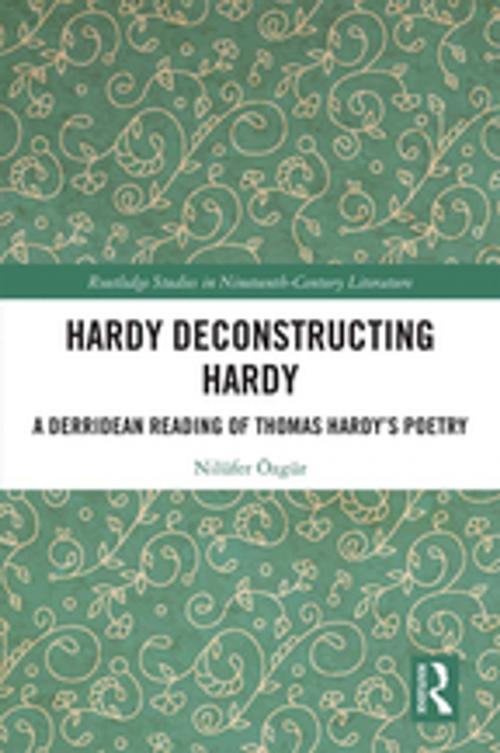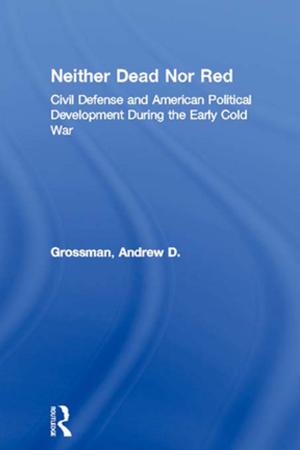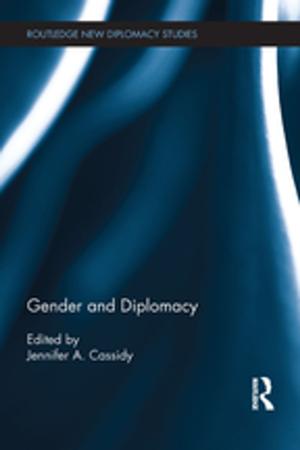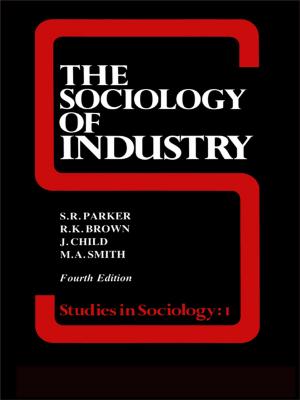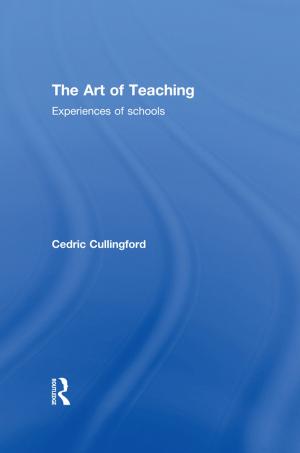Hardy Deconstructing Hardy
A Derridean Reading of Thomas Hardy’s Poetry
Fiction & Literature, Literary Theory & Criticism| Author: | Nilüfer Özgür | ISBN: | 9781351248617 |
| Publisher: | Taylor and Francis | Publication: | October 30, 2017 |
| Imprint: | Routledge | Language: | English |
| Author: | Nilüfer Özgür |
| ISBN: | 9781351248617 |
| Publisher: | Taylor and Francis |
| Publication: | October 30, 2017 |
| Imprint: | Routledge |
| Language: | English |
Hardy Deconstructing Hardy aims to add a new dimension of research which has been partly overlooked—a Derridean, Deconstructive reading of Hardy‘s poetry. Analyzing thirty-four popular and less popular poems by Hardy, this volume challenges current references to Derridean Deconstructionism.
While Hardy is not conventionally considered a Modernist poet, he shares with Modernists an element that can be referred to as the linguistic crisis by which they try to get over the sense of anxiety against the backdrop of a chaotic world and problematized language. The forerunner of Deconstructionism, Derrida, exposes a long established history of logocentric thinking, which has continually been moving between binary oppositions and Platonic dualities. Derrida simply puts forward the idea that there is no logos, no origin, and no centre of truth. The centre is always somewhere else; he identifies this as a ―free play of signifiers.‖ Consequently, the anxiety of the poet with modern sensibility to find a point of reference inevitably results in a ―crisis of representation,‖ or, in a problematic relation between language and truth, the signifier and the signified. This crisis can be observed in Hardy‘s poetry, too. For this purpose, this research focuses on four key concepts in Hardy‘s poetry that expose this problematic relationship between language and truth: his agnosticism, his concept of the self, his language and concept of structure, and his concept of time and temporality. These aspects are explored in the light of Derrida‘s Deconstructionism with reference to poems by Hardy which heralded the Modernist crisis of representation.
This text will fulfill the function of reconciling theory with practice and become the manifestation of the importance of Poststructuralist criticism.
Hardy Deconstructing Hardy aims to add a new dimension of research which has been partly overlooked—a Derridean, Deconstructive reading of Hardy‘s poetry. Analyzing thirty-four popular and less popular poems by Hardy, this volume challenges current references to Derridean Deconstructionism.
While Hardy is not conventionally considered a Modernist poet, he shares with Modernists an element that can be referred to as the linguistic crisis by which they try to get over the sense of anxiety against the backdrop of a chaotic world and problematized language. The forerunner of Deconstructionism, Derrida, exposes a long established history of logocentric thinking, which has continually been moving between binary oppositions and Platonic dualities. Derrida simply puts forward the idea that there is no logos, no origin, and no centre of truth. The centre is always somewhere else; he identifies this as a ―free play of signifiers.‖ Consequently, the anxiety of the poet with modern sensibility to find a point of reference inevitably results in a ―crisis of representation,‖ or, in a problematic relation between language and truth, the signifier and the signified. This crisis can be observed in Hardy‘s poetry, too. For this purpose, this research focuses on four key concepts in Hardy‘s poetry that expose this problematic relationship between language and truth: his agnosticism, his concept of the self, his language and concept of structure, and his concept of time and temporality. These aspects are explored in the light of Derrida‘s Deconstructionism with reference to poems by Hardy which heralded the Modernist crisis of representation.
This text will fulfill the function of reconciling theory with practice and become the manifestation of the importance of Poststructuralist criticism.
